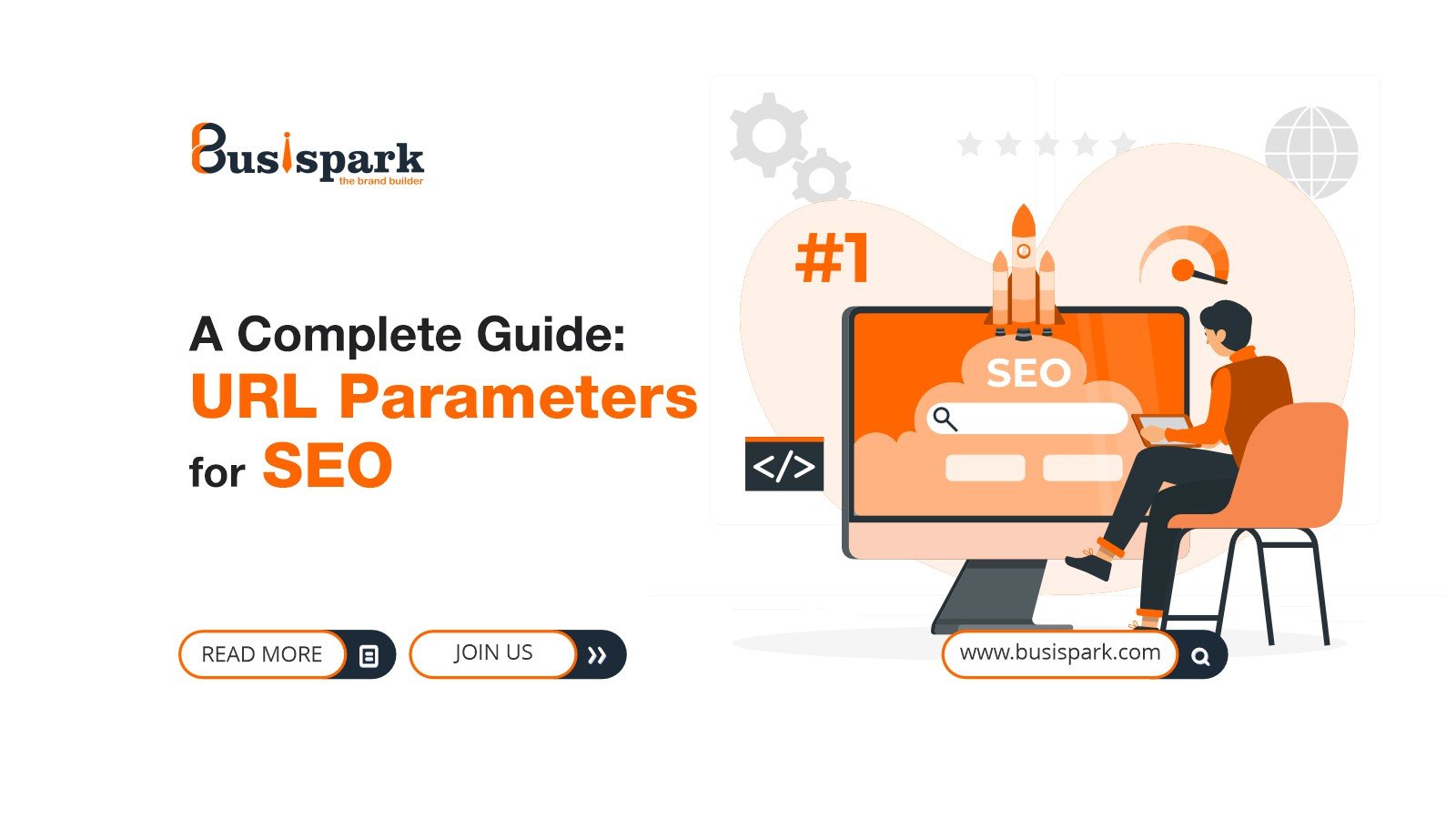
A Complete Guide: URL Parameters for SEO
What Are URL Parameters?
URL parameters, also known as query strings, are elements added to the end of a URL to pass information about a page’s content, tracking data, or user preferences. They play a crucial role in user experience, website functionality, and SEO. URL parameters are widely used in e-commerce, search filters, analytics, and session tracking to customize content delivery and improve navigation.
For example, in the URL:
https://example.com/products?category=shoes&color=black
The category=shoes and color=black are URL parameters that filter the product listings. These parameters help users find the most relevant products quickly without creating multiple static pages.
URL Parameters Example
URL parameters are used in a variety of ways across websites. Here are some common examples:
1. Tracking Parameters
Tracking parameters help marketers and web analysts track user behavior and campaign effectiveness.
Example:
https://example.com/?utm_source=google&utm_medium=cpc&utm_campaign=spring_sale
These parameters indicate that the visitor arrived via a Google ad campaign named “spring_sale.”
2. Filtering and Sorting Parameters
E-commerce websites use URL parameters to allow users to filter and sort products dynamically.
Example:
https://example.com/shop?sort=price_asc&size=large&brand=nike
This URL filters products to display only large Nike items sorted by price in ascending order.
3. Pagination Parameters
Pagination parameters help navigate multi-page content, such as blog archives or product listings.
Example:
https://example.com/blog?page=2
This URL displays the second page of blog posts.
4. Session Parameters
Some websites use session parameters to maintain user sessions. However, session-based URL parameters are not recommended for SEO since they can create duplicate content issues.
Example:
https://example.com/dashboard?session_id=xyz123
Session IDs help websites recognize returning users but should be handled via cookies instead of URL parameters.
What Is URL Parameters SEO?
URL parameters can impact a website’s search engine optimization (SEO) in various ways. If not managed correctly, they can cause issues like duplicate content, wasted crawl budget, and keyword cannibalization. Understanding how search engines handle URL parameters is essential to optimizing a website’s performance.
Common SEO Problems with URL Parameters
- Duplicate Content:
- Search engines may index multiple versions of the same page with different URL parameters.
- Example:
- https://example.com/products?category=shoes
- https://example.com/products?category=shoes&sort=price_desc
These URLs point to the same page but are treated as different pages by search engines.
- Wasted Crawl Budget:
- Search engine bots have a limited crawl budget, meaning they can only index a certain number of pages. If bots waste time crawling unnecessary URL variations, important pages may not get indexed.
- Keyword Cannibalization:
- Multiple URLs targeting the same keywords can dilute ranking potential and confuse search engines about which page to prioritize.
- Broken Internal Linking:
- Some CMS platforms generate parameterized URLs for internal links, leading to duplicate internal linking structures that reduce link equity.
How to Optimize URL Parameters for SEO
Proper management of URL parameters is crucial for SEO. Here are some best practices to optimize parameter SEO:
1. Use Canonical Tags
A canonical tag tells search engines which version of a page is the preferred one. This helps consolidate link equity and prevent duplicate content issues.
Example of a canonical tag:
<link rel=”canonical” href=”https://example.com/products” />
Even if multiple URLs exist with different parameters, the canonical tag directs search engines to index only the main version.
2. Configure Google Search Console Parameters
Google Search Console allows webmasters to specify how Google should handle URL parameters. By defining whether parameters change page content or not, you can guide search engines to crawl your site more efficiently.
3. Use Robots.txt to Block Unnecessary Parameters
Prevent search engines from crawling unnecessary URL parameters by disallowing them in your robots.txt file.
Example:
User-agent: *
Disallow: /*?session_id=
Disallow: /*?sort=
This prevents search engines from crawling session IDs and sorting parameters, reducing duplicate indexing.
4. Prefer Static URLs Over Dynamic URLs
Static URLs are cleaner, more user-friendly, and easier to rank than dynamic URLs with parameters. Whenever possible, structure URLs without excessive parameters.
- Good: https://example.com/shoes/black
- Bad: https://example.com/products?category=shoes&color=black
5. Implement Hreflang for Multilingual Sites
If using URL parameters to serve different languages or regions, implement hreflang tags to guide search engines to the correct version.
Example:
<link rel=”alternate” hreflang=”en” href=”https://example.com/en/products” />
<link rel=”alternate” hreflang=”fr” href=”https://example.com/fr/products” />
This prevents duplicate content issues across different language versions of your site.
6. Avoid Parameter-Based URL Duplication
If the same page exists in multiple parameterized forms, use one main URL and redirect others to it.
Example:
301 Redirect → https://example.com/shoes
7. Use JavaScript for Non-Essential Parameters
If certain parameters (like tracking codes) do not change the content, consider using JavaScript to append them dynamically rather than including them in the URL.
8. Optimize Internal Links to Use Clean URLs
Ensure that internal links point to clean, static URLs rather than parameterized ones. This improves crawl efficiency and avoids confusing search engines.
Conclusion
Understanding and managing URL parameters is crucial for optimizing a website’s search engine rankings and user experience. By implementing best practices such as canonical tags, robots.txt rules, and Google Search Console configurations, website owners can prevent duplicate content issues, save crawl budget, and improve overall SEO performance.
Well-optimized URL parameters help ensure that search engines focus on valuable content while avoiding unnecessary indexing of parameterized variations. By following these guidelines, businesses can enhance their website’s visibility, improve search rankings, and provide a better experience for users and search engine crawlers alike.





